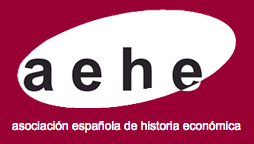Redistributive policies in non-democratic Spain: From protecting industry to assisting farmers (1950–1975)
DOI:
https://doi.org/10.1016/S1698-6989(08)70168-1Keywords:
Agricultural Policies, Income Redistribution, Price Support, Market Regulation, Franco’s Spain, N84, Q18Abstract
As suggested by the developmental pattern, policies to support farmers’ income developed in Spain from the 1960s onwards, when the country saw a process of rapid economic growth. Direct subsidies promptly increased and price-support policies, similar to those applied for more advanced countries from 1950, expanded for many commodities. Budgetary restrictions were not an obstacle to the redistribution of resources to agriculture, because farm support in Spain was based essentially on market intervention and pricesupport policies. In fact, only 10–20 per cent of today's net transfers to agriculture in advanced countries come from subsidies and monetary transfers. From the 1960s, the intensity of support to Spanish farmers, as measured by the Nominal Protection Coefficient (NPC) and the Producer Support Estimate (PSE), was similar to that in the EEC. This result contradicts both Lindert's assumption that agriculture gets more protection under democratic regimes and the olsonian view that large-scale intervention in agricultural markets results from the collective action of lobby groups.Downloads
Downloads
How to Cite
Issue
Section
License
Aquellos autores/as que tengan publicaciones con esta revista, aceptan los términos siguientes
- Los autores/as conservarán sus derechos de autor y garantizarán a la revista el derecho de primera publicación de su obra, el cuál estará simultáneamente sujeto a la Licencia de reconocimiento de Creative Commons Reconocimiento-No comercial-Sin obra derivada 4.0 Internacional que permite a terceros compartir la obra siempre que se indique su autor y su primera publicación esta revista, y no permite hacer uso comercial de la misma ni tampoco obras derivadas.
- Los autores/as podrán adoptar otros acuerdos de licencia no exclusiva de distribución de la versión de la obra publicada (p. ej.: depositarla en un archivo telemático institucional o publicarla en un volumen monográfico) siempre que se indique la publicación inicial en esta revista.
Plagio y fraude científico
La publicación de un trabajo que atente contra los derechos de propiedad intelectual será responsabilidad de los autores/as, que serán los que asuman los conflictos que pudieran tener lugar por razones de derechos de autor. Los conflictos más importantes pueden darse por la comisión de plagios y fraudes científicos.
Se entiende por plagio:
- Presentar el trabajo ajeno como propio.
- Adoptar palabras o ideas de otros autores sin el debido reconocimiento.
- No emplear las comillas u otro formato distintivo en una cita literal.
- Dar información incorrecta sobre la verdadera fuente de una cita.
- El parafraseo de una fuente sin mencionar la fuente.
- El parafraseo abusivo, incluso si se menciona la fuente.
Las prácticas constitutivas de fraude científico son las siguientes:
- Fabricación, falsificación u omisión de datos y plagio.
- Publicación duplicada.
- Conflictos de autoría.





